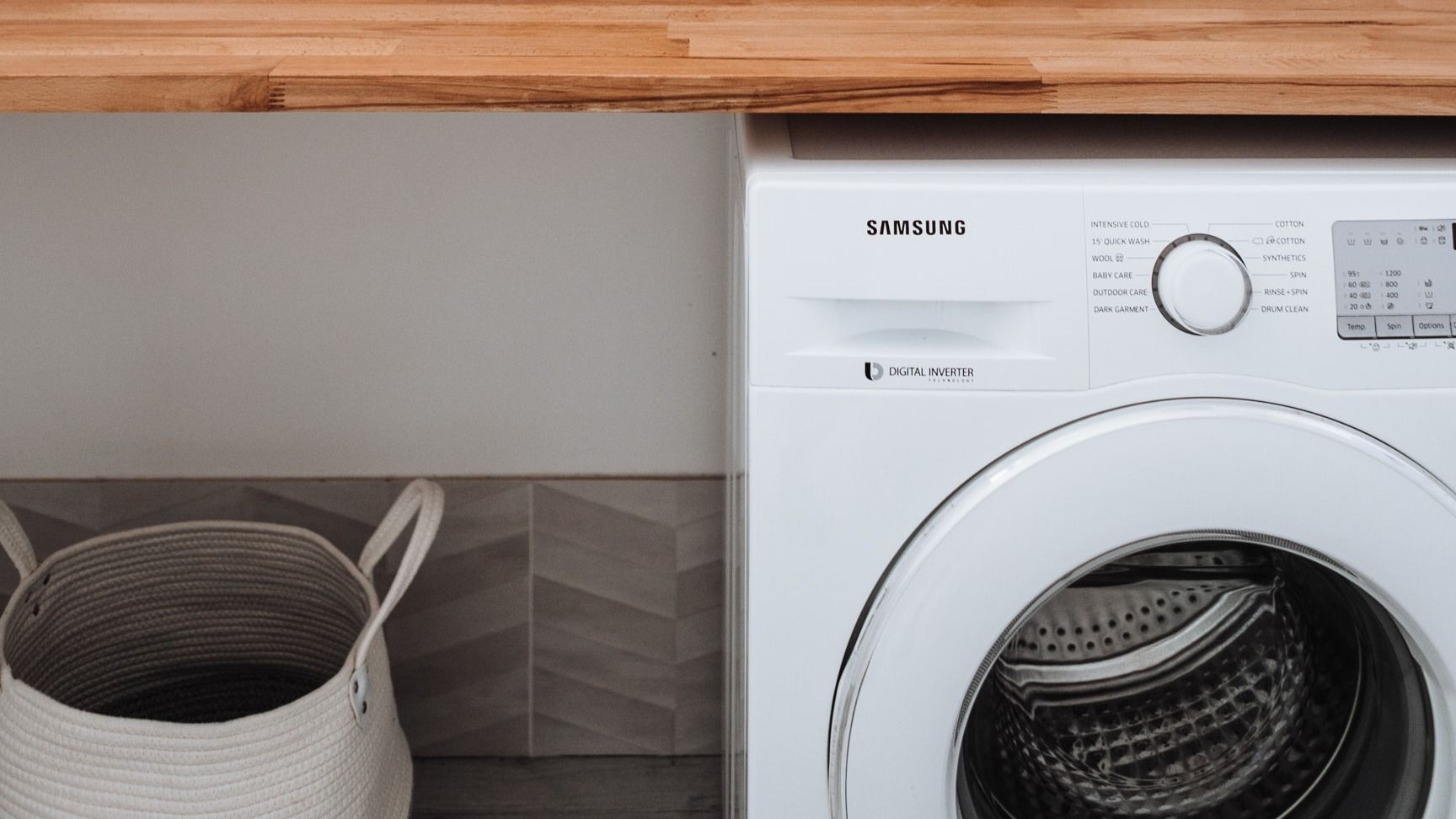
Troubleshooting Samsung Washers: Why Your Washer Takes Forever to Finish the Cycle
A washing machine is a staple appliance in many households, designed to provide convenience and efficiency. However, if your Samsung washer is taking an unusually long time to complete a cycle, it can be both frustrating and time-consuming. This article will explore the possible reasons behind this issue and provide actionable solutions.
1. Overloading
One of the most common reasons for a washer taking too long to complete a cycle is overloading. If you’ve stuffed your Samsung washer with too many clothes, it may struggle to clean them effectively, resulting in longer cycle times.
**Fix:** Make sure you’re not overloading your washer. Follow the manufacturer’s guidelines regarding load size, and ensure that clothes are distributed evenly in the washer. This will not only help shorten the cycle time but also ensure a more thorough cleaning.
2. Unbalanced Loads
An unbalanced load can cause your washer to struggle, taking longer to finish the cycle. If the load is unevenly distributed, the washer may stop and try to rebalance the load before continuing the cycle, adding more time.
**Fix:** Redistribute the load evenly inside the washer drum. If the washer continues to have issues with unbalanced loads, you might need to inspect the suspension system for any damages or malfunctions.
3. Detergent Issues
Using the wrong type or too much detergent can cause excessive suds, leading to longer cycle times. Excess suds may prevent the washer from draining properly, prompting the machine to add more time to the cycle to eliminate the suds.
**Fix:** Always use high-efficiency (HE) detergent for Samsung washers, as they produce fewer suds than regular detergents. Additionally, follow the manufacturer’s recommendations for detergent amounts to prevent excessive suds.
4. Clogged Drain Pump Filter
The drain pump filter in your Samsung washer is responsible for trapping debris and lint. If the filter becomes clogged, it can slow down the draining process, leading to extended cycle times.
**Fix:** Regularly clean the drain pump filter, following the manufacturer’s guidelines. Remove any lint, debris, or foreign objects that may have accumulated in the filter. If the filter is damaged, replace it to ensure proper drainage.
5. Faulty Water Inlet Valve
The water inlet valve controls the flow of water into the washer. If it’s defective or clogged with sediment, it may not supply water at the correct rate, causing longer cycle times.
**Fix:** Inspect the water inlet valve for any signs of damage or clogs. You can also test the valve with a multimeter to check for electrical continuity. If the valve is faulty, it should be replaced.
6. Kinked or Clogged Drain Hose
A kinked or clogged drain hose can impede the flow of water out of the washer, causing it to take longer to complete the cycle.
**Fix:** Check the drain hose for kinks or clogs. Straighten any kinks, and remove any obstructions to ensure proper water flow. If the hose is damaged, replace it.
7. Malfunctioning Control Board
The control board in your Samsung washer manages the various functions of the appliance. If it’s malfunctioning, it could cause the washer to take longer to finish the cycle.
**Fix:** Diagnosing and repairing a faulty control board is a complex task that should be left to professionals. If you suspect your control board is causing the issue, contact a Samsung service center or a qualified technician.
8. Water Temperature Issues
Samsung washers use water temperature sensors to ensure the correct water temperature is used for each cycle. If the sensor is faulty, it may cause the washer to take longer as it attempts to reach the correct temperature.
**Fix:** You can test the water temperature sensor using a multimeter to check for continuity. If the sensor is faulty, it should be replaced. If you’re not comfortable doing this yourself, contact a professional.
9. Program Selection
Certain wash programs take longer than others due to the nature of the wash. For instance, cycles like ‘Sanitize’, ‘Bedding’, or ‘Heavy Duty’ will take more time compared to ‘Quick Wash’ or ‘Delicates’.
**Fix:** Ensure that you’re choosing the right program for your laundry. If you need to wash clothes quickly, consider using a ‘Quick Wash’ or ‘Speed Wash’ setting. Keep in mind, though, that these settings may not be as thorough as the longer cycles.
10. Blocked or Closed Water Supply
A reduced water supply due to blockage or partially closed water supply valves can cause the washer to fill slowly, thereby extending the cycle time.
**Fix:** Check the water supply valves to ensure they are fully open and providing an adequate water supply. Also, check the hoses for any possible blockages or kinks.
11. Failing Drive Belt or Motor
The drive belt connects the motor to the drum, enabling the rotation necessary for different washing cycles. If the drive belt is worn out or the motor is malfunctioning, it might slow down the wash cycle, causing it to run longer.
**Fix:** Inspect the drive belt for signs of wear or damage. If it’s worn out, replace it. Similarly, if the motor is making unusual noises or not running smoothly, it may need repair or replacement. These tasks can be complex, so professional assistance is recommended.
12. Heater Element Problems
If your washing cycle includes a heating phase, a faulty heater element could be causing delays. The washer won’t progress to the next stage of the cycle until the water has reached the set temperature.
**Fix:** A professional technician can test the heater element and replace it if needed. This isn’t typically a job for a DIY repair, as it involves dealing with electrical components.
13. Faulty Pressure Switch
The pressure switch in your Samsung washer detects the water level in the drum. If it’s faulty, it might misread the water level, causing the machine to take longer to fill or empty, hence extending the cycle time.
**Fix:** If you suspect a pressure switch issue, you may need to contact a professional. They can test the switch and, if necessary, replace it to ensure the washer correctly reads water levels.
14. Software Glitches
In some cases, your Samsung washer could have a software glitch that causes it to extend the wash cycle or get stuck on a particular phase.
**Fix:** Try resetting your washer by unplugging it, waiting for a few minutes, and then plugging it back in. This can often clear minor software glitches. If the issue persists, contact Samsung support or a qualified technician for help.
15. Cold Water Supply
If your water supply is too cold, it can take longer for your washer to reach the necessary temperature for certain wash cycles. This is more likely to be an issue in colder climates or during winter months.
**Fix:** Unfortunately, there’s not much you can do about the temperature of your water supply. However, you can select a cold wash cycle to avoid waiting for the water to heat up.
In summary, extended wash cycles in your Samsung washer could be due to a range of issues, from simple overloading to more complex problems with the machine’s components. By understanding these potential causes, you can take steps to resolve the issue and get your washer back to its peak performance.
However, while it’s possible to troubleshoot some of these problems yourself, others will require the expertise of a professional. Always prioritize safety, and don’t hesitate to seek professional help when dealing with electrical appliances. Regular care and maintenance of your Samsung washer can help prevent many issues, ensuring it provides efficient service for years to come.
Appliance repair, Appliance repair in Burnaby, Appliance repair in New Westminster, Appliance repair in Vancouver, Appliance repair near me, Coquitlam, Dishwasher repair, Doctor appliance, Dryer repair, Freezer repair in Burnaby, Fridge repair, Fridge repair in Burnaby, Oven repair, Port Coquitlam, Port Moody, Refrigerator repair in Burnaby, Stove repair, Washer repair, Washing machine repair
